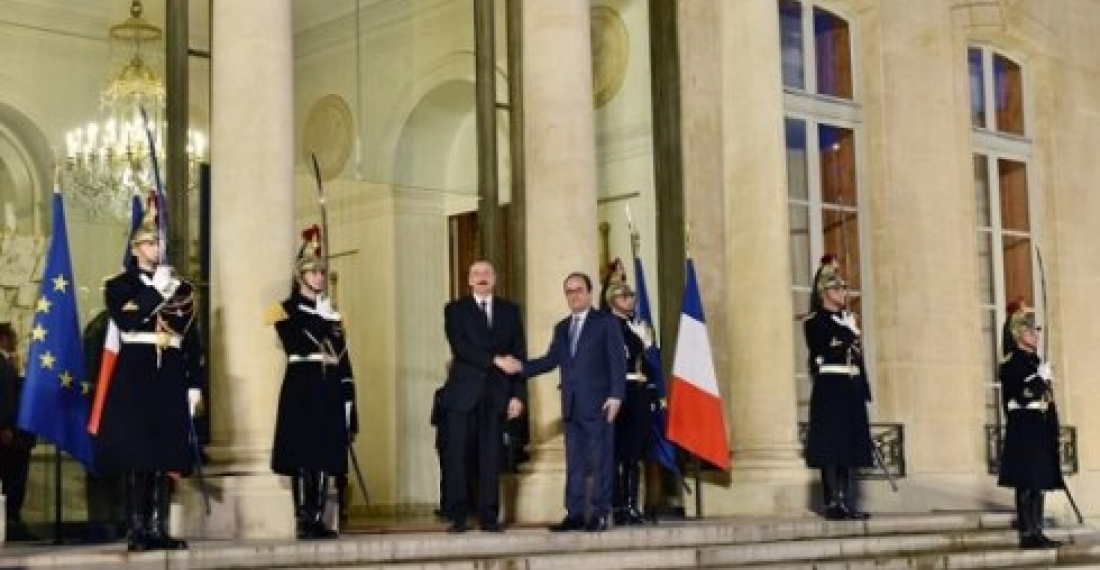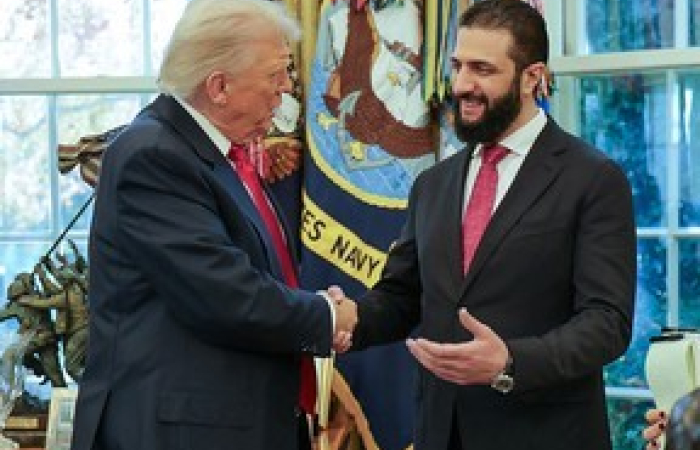Решение нагорно-карабахского конфликта и укрепление двусторонних отношений были основными темами в ходе переговоров, которые состоялись во вторник вечером (14 марта) между президентом Азербайджана Ильхамом Алиевым и президентом Франции Франсуа Олландом в ходе встречи в Елисейском дворце в Париже. Президент Алиев в настоящее время находится с официальным визитом во Франции. Ранее он провел встречи с несколькими ведущими французскими бизнесменами и промышленниками, а также с лидерами двух палат французского парламента.
Сегодня вечером по приглашению президента Олланда президент Азербайджана будет почетным гостем на ужине в Елисейском дворце.
источник: commonspace.eu
фото: Президент Олланд приветствует президента Алиева в Елисейском дворце, 14 марта 2017 года (фото любезно предоставлено пресс-службой президента Франции)






